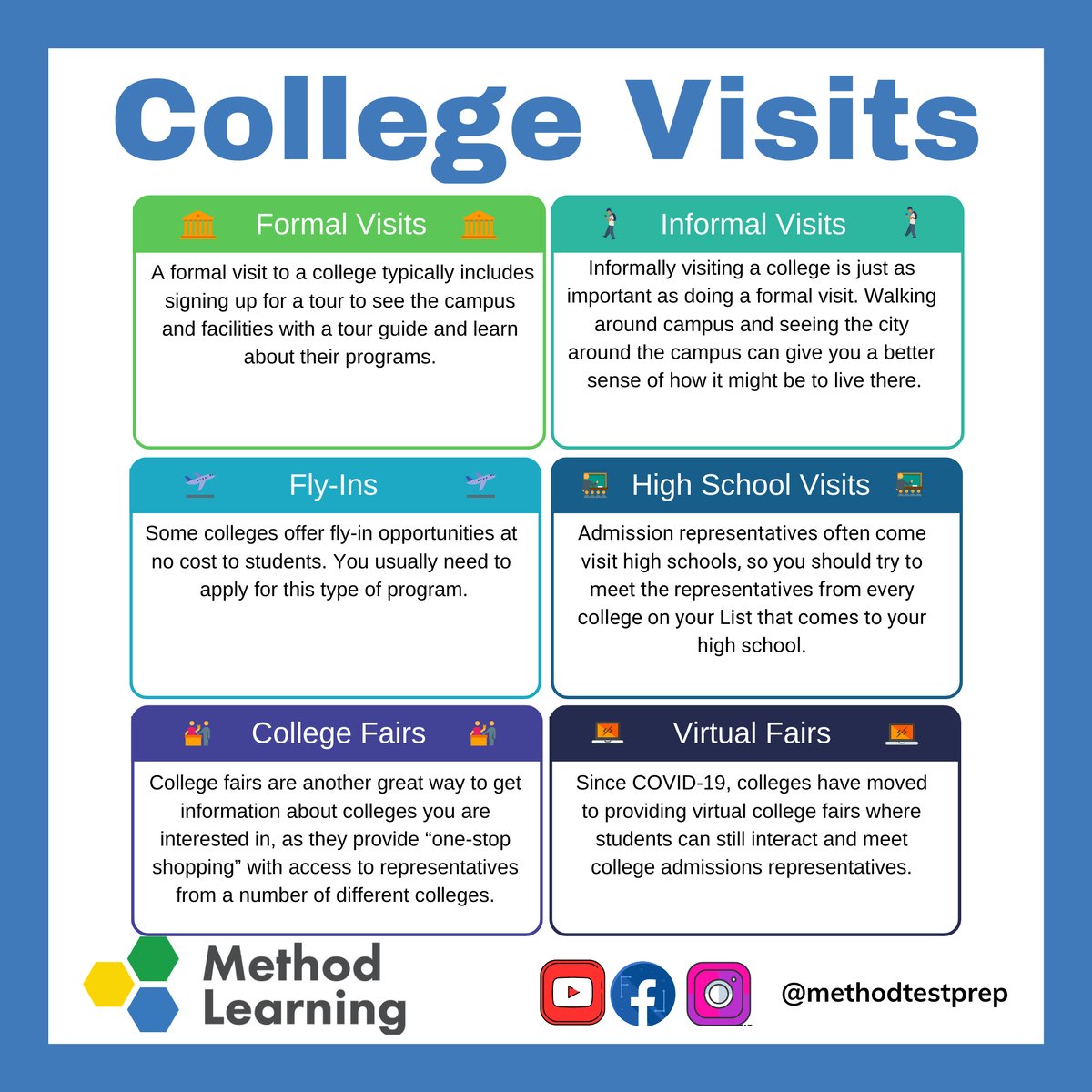How to Take Control of the College Visit

With summer quickly approaching, it is the time of the year that families begin to look towards visiting colleges. It is extremely important that you visit the colleges you are interested in. There are two primary reasons for this. First, while some schools may look great on paper, they may not meet your expectations or simply not be a good fit for you. I have seen too many students who accept a spot, only to transfer after the first semester because it was not what they expected. When I ask, "Did you visit?", most readily admit they did not. Second, many colleges look at a student visiting their campus as part of demonstrating they are interested in the college. Called “demonstrated interest”, it is often one of the criteria they are for looking at when reviewing your academic and non-academic factors, sometimes ranking it as high as character/personal qualities, volunteer work, and extracurricular activities.
Want to know more about how colleges view academic and non-academic factors, view the replay webinar below.
There are 6 different types of ways to "visit" a college. While a traditional formal visit is always advised, especially so you can see not only the campus but the area around it, depending on time and your budget, these will all provide you with a better sense of the college.

A word of caution when doing a college visit. College admission events are well-designed and implemented. Your campus tour is usually led by a likable and knowledgeable student at the college. You get to see the nice landscaping and the new, fancy buildings. You should understand that you are a potential paying customer and the college is trying to get you to buy in. Colleges spend a lot of money on their marketing, branding, and advertising all aimed at getting you to feel that this is the best place possible for you. And, in fact, it might be. But a college visit is not the time to be a passive consumer; you should get yourself ready to ask questions that will enable you to better understand what that college is really all about. This is a time to focus on your 6 Keys of College Fit and try to gather as much objective information about the college as you can.
If you missed the webinar describing the 6 Keys of College Fit and what each means watch this webinar replay.
Some Examples:
- If you have an IEP or a 504 Plan, you should visit and meet with the office that supports students with disabilities on campus.
- Be sure to explore writing and tutoring services, as well as academic and personal counseling services that are there to support you and help you be successful.
- You should also learn about alumni networks, mentoring support, and the career center to help you transition into the world of work after you graduate.
Use this handy download called the College Visit Questions (from the College UnMazed student workbook used in our college advising program) on each of your visits and it will help you ask the right kinds of questions to see if the college is a good fit for you. Be sure to go through these questions as a family and take notes, as the colleges can quickly blur together when visiting several. This is an exciting time for your family!
Enjoy your visits!
Dr. Amanda Sterk
Director of College and Career Advising
Dr. Amanda Sterk is the Director of College and Career Advising at Method Learning. Dr. Sterk has guided thousands of students through academic planning, career exploration, and applying and succeeding in college admissions and scholarships. She is co-author of the nationally recognized college admissions workbook, College UnMazed: Your Guide to Navigate the High School to College Maze. Dr. Sterk graduated with her Bachelors in Education from the University of Northern Iowa, Masters in Counseling from Drake University, and Doctorate in Educational Leadership from Creighton University.



